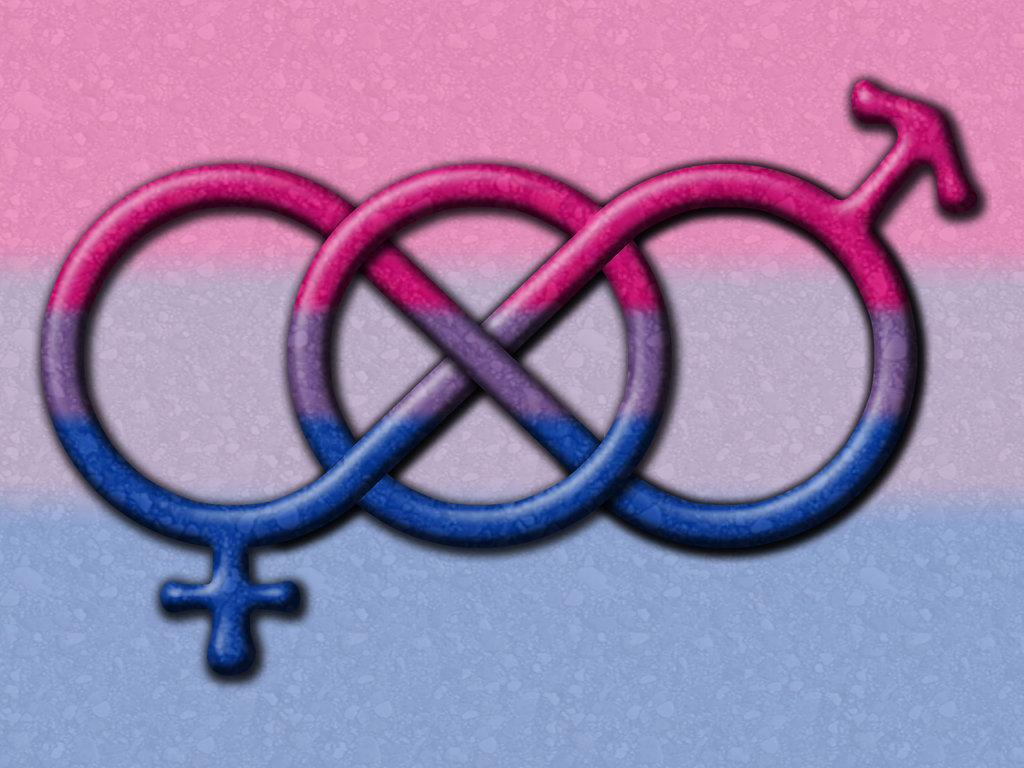

Growing up in New York City, specifically a neighborhood with a strong LGBTQ community, I was used to same sex-couples walking by as I went to the corner deli to grab some candy. It never truly occurred to me until middle school that having an attraction to a girl was wrong. For the longest time, I was confused about how to define myself because I had crushes on both girls and boys. Even my very first kiss was not from an awkward boy in middle school: my first kiss happened with a girl, and it felt just as natural as it did when I kissed a boy a few years later. The word “bisexual” never even entered my purview until my high school friend came out as a bisexual senior year. To find a word that defined my sexuality was completely liberating; I could finally explain my attractions and finally felt like I belonged in this world. My next step was to come out to my family, or so I thought.
I chose to explain my sexuality to my mother over dinner. I began by talking about my friend who had come out the week before. My mother simply looked at me and said, “Sweetie, I hope you realize that bisexuals don’t exist. Your friend is simply a confused lesbian.”
That statement would stay with me; to hear from my mother that my sexuality was a myth shocked me. I knew that I was not just a lesbian. My mother’s response shut down all my preconceived notions that I could be accepted by anyone who loved me. I never told her my sexuality, and it very well may be that I can never tell her. I still love my mother, but I’ve always held a slight resentment against her because of her inability to understand that there is more to sexuality than just being either straight or gay.
Of course, my life changed dramatically once I arrived at Amherst. Here, I have never felt stifled to keep my sexuality a secret. People here accept and welcome me for who I am, not who I’m attracted to. But Amherst is not without its problems. While students accept my sexuality, I still get questions: “Are you attracted to everyone,” “Is it just a phase,” or “Are you confused?” The list goes on. To me, these questions are just as ridiculous as asking a straight woman, “Are you attracted to every man?” These questions are offensive. I understand that people are curious, but there are other ways to ask about bisexuality without making backhanded comments. But what shocks me most is that these questions come from members of every sexuality.
As time passed and I became more comfortable with who I am, I expected to get confused looks when I told someone I was bisexual. To be fair, I really only expected it from the heterosexual community. This idea was quickly shot down when I spoke to both my aunt and a colleague at Amherst. Both are lesbian, yet when I spoke to them about my experiences regarding my sexuality, I was immediately told that I should question my attraction to men simply because, “it’s not right to like both genders.” This does not go to say that every member of the LGBTQ community has some sort of biphobia, but it definitely left me feeling out of place in a world of either exclusive heterosexuality and homosexuality. It always feels to me that I somehow have to choose a side. I find myself frustrated that many people still think of sexuality as either “this or that” when it really is a spectrum.
It’s clear to me that Amherst College students, while accepting, need more of an education about bisexuals and bisexuality. I want people to have a full understanding that bisexuality is simply a romantic attraction to males and females, nothing more, nothing less. The Queer Resource Center is a great place to learn about the various types of sexuality. What I find to be the source of the various opinions and myths on bisexuality is simply rooted in the very idea that sexuality needs to be black or white. However, with my friends, I always feel safe and accepted. I’m never bombarded with questions and I feel free to talk about my crushes or dates without needing to censor my thoughts. It has been liberating to just simply be seen as a person rather than some oddity that does not fit in with the accepted ideas of sexuality.
Overall, I’m thankful for my life here at Amherst, but, I can still see room for improvement in attitudes surrounding sexual identity. The biphobia that I have experienced is something that is easily reparable. The questions people ask me are solely based on the little information they know. Hopefully, there will be a time when those questions stop and I don’t have answer endless questions about my sexuality.
If you are interested in contributing to the Queeriosity column, contact the Amherst College Pride Alliance at pridealliance@amherst.edu!